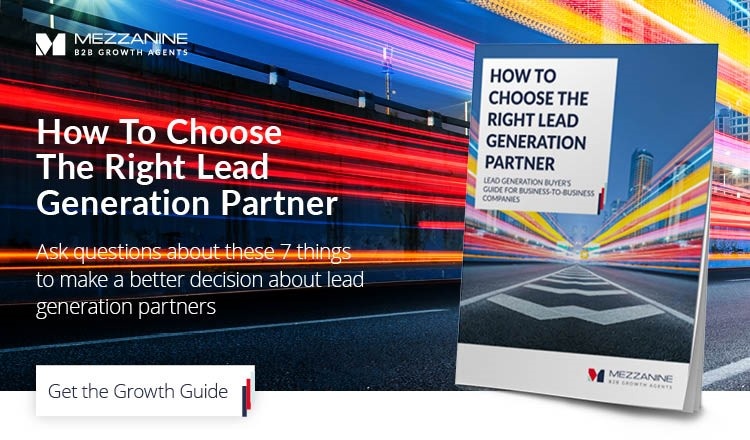5 Questions To Dramatically Accelerate Your Revenue Generation

Coming out of the pandemic, B2B leaders are looking to accelerate their revenue pipelines - from lead generation, to converting opportunities from one stage of the buying process to the next, to closing new deals. B2B revenue generation is a complex process that rarely has a 'silver bullet' solution to improve results. More often, there are areas in the sales pipeline where a company is strong, and areas where it knows it is weak and can focus its efforts to enhance performance. Answer these 5 questions to dramatically accelerate your revenue generation.

1. What are the best ways our company can generate new leads in a COVID and post-COVID world?
There are many tools that B2B companies use to generate leads. Some of the best tools include webinars, search advertising, in-person trade shows, social media and email marketing. Through the pandemic, the majority of in-person trade shows have been cancelled or turned virtual, and many companies have restricted travel - which reduces the potential of this tool for 2020 and into 2021. The digital alternatives are going strong though. All kinds of digital content have seen an uptick in performance, with webinars and interactive content delivering particularly strong results for most B2B companies.
By asking this question and evaluating your company's data, you'll become clearer about the lead generation tools that work best in your business. Factor in the conversion rates of your lead generation tools - do webinar leads convert twice as successfully as search engine advertising leads? If so, make sure you're investing more in webinars than in search engine advertising. And keep using a variety of tools even if some tools perform better than others. The reality is that B2B companies need to use multiple tools and appear in multiple channels in order to gain credibility in the market and serve the many different buyers in the purchase process.
2. How is our company currently perceived in the market (really perceived, not just what we want to believe)?
What does the market think of your company? Are you the premium player, the '800lb gorilla' that everyone knows, and potentially thinks is over-priced? Or are you a complete unknown that no one has heard of, even though you have amazing technology, a great team, and ambitions to match?
Being clear about this is essential to starting in the right place with your sales and marketing efforts. If you aren't realistic about the level of your company's reputation (credibility) and awareness in the market, you'll waste a lot of money pursuing activities that won't deliver results.
If you are unknown, you'll get better results by doing a combination of awareness AND lead generation tactics, rather than lead generation alone.
Read 'How To Balance Brand Awareness And Lead Generation' for more information.
3. What are the most effective tools for converting opportunities from one stage of the sales pipeline to the next?
Conversion optimization has become an important part of building a powerful B2B growth engine. If a company is already strong at generating leads, then improving the success of converting opportunities from one stage of the funnel to the next may be the best way to accelerate revenue generation.
Are there particular stages in your buyer journey where leads drop off? For example, is your team great at bringing prospects through the door through informative webinars, but the vast majority of prospects don't convert to a next stage? Perhaps you aren't following up quickly enough or with a sufficiently valuable offer to attract buyers to a next conversation.
Assess each stage in the buyer journey and where the biggest opportunity and impact is. Then identify and create the tools that will support that improved performance. Do you need more case studies? A competitor comparison? An ROI calculator? Identify these, get them built, and roll them out to your sales and marketing organization.
4. What is our competitive advantage?
At the heart of your revenue strategy is your company's competitive advantage. What are you great at and how are you different than competitors? In short, why should customers buy from you?
Too many B2B companies don't know what their competitive advantage is, or they do a poor job of articulating it.
Making improvements in this area has an exponential impact on a B2B company's revenue growth. When succinctly defined, the competitive advantage makes every other sales and marketing activity and investment more powerful.
Read '5 Practical Tips To Find Your Competitive Advantage' for more information.
5. How do we measure our revenue generation performance?
How is your reporting and evaluation of your revenue pipeline? Consider these questions:
- Do you know how many leads you generate monthly and from which sources?
- Do you know at what rate these leads convert through your funnel and at what speed?
- Do you review your performance in a regular meeting (weekly or monthly) and identify improvements to make in the coming month?
There are many great CRM systems to help you accomplish this. Pick one and get using it! (Hubspot, Salesforce and Dynamics are the most popular choices we've seen).
.png?width=2361&height=488&name=Mezzanine%20Logo_Horiz_RGB_on%20blue%20(1).png)

